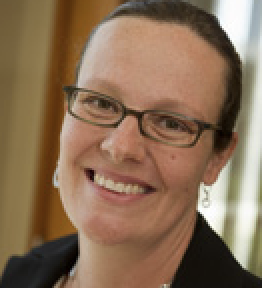Prof. Lucy Hutyra studying the effect of Methane and COVID-19
CISE Faculty Affiliate and Professor Lucy Hutyra (CAS- Earth & Environment) is working to expand her research into the effect of methane levels in cities, and specifically understanding methane changes in cities affected by COVID-19.

Her research interests include studying methane emissions from cities, and how these emissions levels have been affected by the ongoing COVID-19 pandemic. Prior to the pandemic, Hutyra and her colleague, fellow CISE Faculty Affiliate Nathan Phillips (CAS- Earth & Environment), had been studying methane levels in cities for years. Hutyra and Phillips noticed that levels of methane in Boston were not what they had expected, according to a methane measuring instrument installed in Hutyra’s car. The methane levels seemed to wax and wane for no particular reason.
“The data didn’t make sense,” Hutyra said, “but it was correct, and this accidental measurement highlighted a problem we didn’t realize existed.” Their measurements found that gas leaks were much more prevalent than initially thought, and that large amounts of Boston’s total methane emissions were unintended. One place of surprising methane leakage was in a cemetery, an unexpected location for Hutyra and her colleague.
Applying this precedent to the COVID-19 pandemic, Hutyra expected no change in methane loss due to COVID-19. “Gas doesn’t care about COVID. In theory, gas would continue to leak at the same rate, regardless of the pandemic,” she said. When Hutyra observed that gas levels were changing starting in March 2020, she adjusted her initial hypothesis to figure out why this was so.
The changes that have occurred since the onset of the pandemic suggest to Hutyra that unintended methane emissions were coming from another point in the network besides underground gas lines. The new hypothesis she and her colleagues formed was that these new numbers were coming from a place no one expected: stoves in restaurants.
As most restaurants use gas to power their large multi-burner stoves all day, these restaurants may be responsible for a lot more of gas emissions than we may realize. Turning these stoves off may be a reason why emissions declined with the pandemic lockdown, as noted by Hutrya.
Additionally, Professor Hutyra’s research has focused on carbon dynamics in forest systems and urban areas. Over the past eleven months her work has focused more specifically on the role COVID-19 has played in the area of carbon dynamics.
In 2020 CO2 emissions are estimated to have declined by 5.5%, but it is clear to Hutyra and other researchers in the field that the largest benefits from an emissions standpoint were seen during the most intense COVID-19 shutdowns, and emissions have recovered rapidly. While this decrease has not been sustained, there is something to be learned from it.
Continuing to cut back on aviation travel is one way we have learned we are capable of reducing emissions. “I used to be on a plane, traveling for work, at least once a month,” Hutyra recalled, “I don’t see that in my future anymore, even after this ends.” Hutyra adds that this is one of the COVID-19 changes she hopes and thinks has the potential to stick.
“For us to reach the goals of the Paris Climate Accord, we have to reduce emissions more than what we have done in this COVID year, every year for the next decade,” says Hutyra. “We have to try, we have to start, but we aren’t on that pathway yet.”
In addition to reducing these emissions through vast changes, Hutyra explains that other parts of the system we rely on to absorb emissions need to hold up. Forests and oceans are responsible for absorbing up to half of the emissions produced by the global population. With wildfires and other natural disasters continuing to threaten large forest areas across the country and world, we need to act to preserve them. As the ocean continues to warm, it becomes less and less efficient at absorbing carbon. Without these two sinks for absorbing CO2, we would not be able to handle the current levels of emissions we are producing.
“Rejoining [Paris Climate Accord] is the right thing to do, but it’s not enough.” Hutyra believes that a major mechanism of achieving the level of change required is legislature. A policy-based approach to this issue is what will help the world to achieve the emissions decreases needed.
Hutyra’s research examines what is thought to be happening in the ground, and verifies it by looking at what is in the air. “If the policies are working the way they should, we should see it in the air,” Hutyra says.